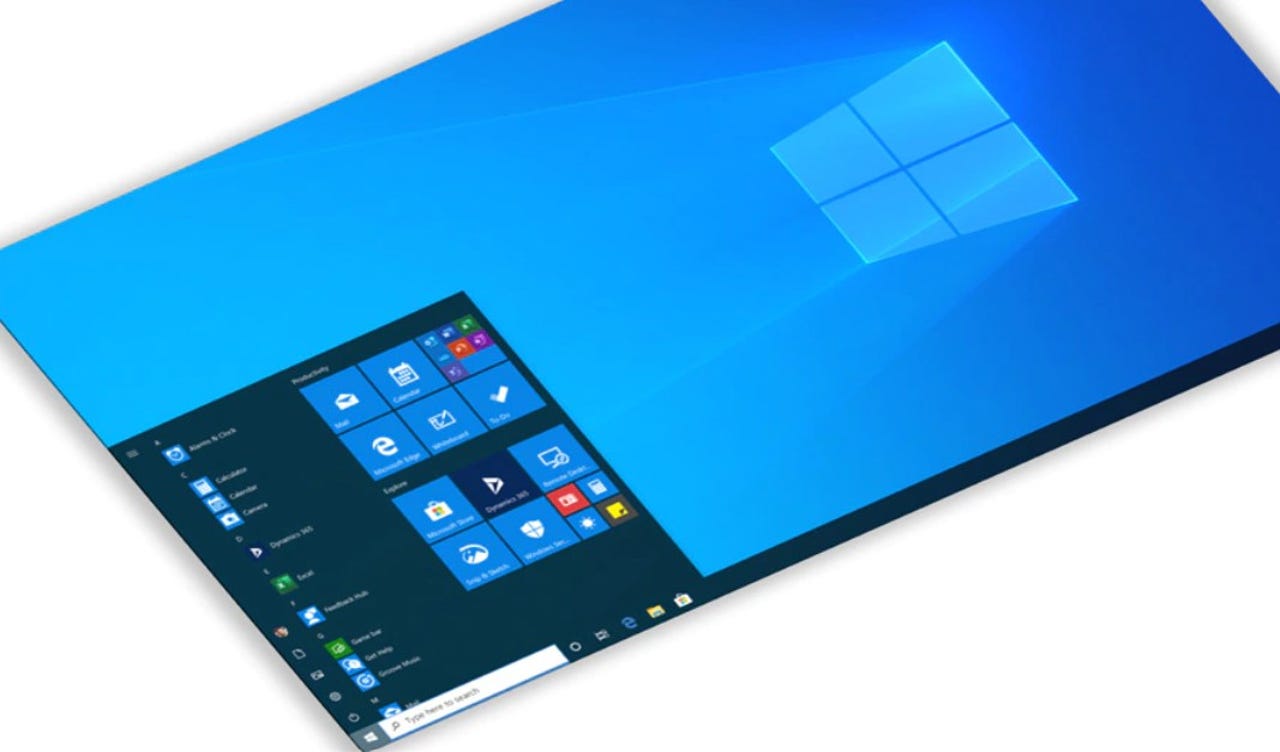































 Credit: Microsoft
Credit: Microsoft Here are 's top picks for a variety of use cases.
Read nowOn November 16, Microsoft is starting to roll out Windows 10 21H2, also known as the Windows 10 November 2021 Update. As part of this rollout announcement, officials also are finally providing some answers as to what's next for Windows 10: It's moving from a twice-yearly to a once-yearly feature update pace, just like Windows 11 already offers.
The next Windows 10 feature update following 21H2 will be in the second half of 2022, officials said today. And Home and Pro editions of the 21H2 update will get 18 months of support, while Enterprise and Education editions will get 30 months, starting today.
Microsoft is renaming the service option for Windows 10 releases to the "General Availability Channel" starting with the 21H2 update, replacing the current "Semi-Annual Channel" term for servicing options.
Company officials also said today that the x64 emulation that it has made part of Windows 11 on Arm will only be coming to Windows 11 and not to Windows 10 on Arm. Microsoft originally announced that x64 emulation would be a Windows 10 on Arm feature.
Unsurprisingly, Microsoft will be throttling the rollout of Windows 10 21H2, as it typically does these days with new Windows feature updates. That means not every eligible device will get notifications that users can download it immediately; instead, it will be offered first to devices where Microsoft believes users will have a good experience running the update.
That said, Windows 10 users running Windows 10 2004 or later can proactively seek out the 21H2 update by going to Windows Update (Settings > Update & Security > Windows Update) and checking for updates. At that point, some users may see that they can opt instead to go to Windows 11 instead and be able to download and install it immediately if they'd rather go that route. Officials said that the Windows 11 rollout is going more quickly than expected, and it is making the Windows 11 upgrade more broadly available to eligible Windows 10 devices.
See also: Upgrading from Windows 10 to 11: A step-by-step guide.
Microsoft also is making 21H2 available starting today to admins using Windows Server Update Services (WSUS), Windows Update for Business, the Software Download Center/Media Creation Tool, and the Volume Licensing Service Center (VLSC). The promised Windows 10 Enterprise LTSC (Long Term Servicing Channel) 2021 release also is available as of today. This edition will be supported for five years, rather than 10, as Microsoft previously acknowledged.
Windows 10 21H2 will be a quick and brief install for users who already are on Windows 10 2004 or later; the update will look and feel more like a monthly cumulative update because there are very few new features in it. Earlier this year, Microsoft officials said the Windows 10 21H2 features would include:
However, Microsoft officials recently said the new Windows Hello for Business deployment method -- also known as "cloud trust" -- is still not ready and will be delivered in a future update to those with 21H2.
See also: Windows 10 is a security disaster waiting to happen.
Windows 10 version 21H2 also includes security updates for the following: Windows AI Platform, Windows App Platform and Frameworks, Windows Apps, Windows Cryptography, Windows Fundamentals, Windows Input and Composition, Windows Kernel, Windows Media, Windows Office Media, and Windows Virtualization.
Microsoft is updating a number of its deployment tools and technologies simultaneously with the release of 21H2, trying to bring what's available for Windows 10 in alignment with Windows 11. Along those lines, Microsoft has begun rolling out its updated Microsoft Store app store, which first debuted in Windows 11 to Windows 10 PCs, officials reiterated today.
Microsoft will continue to provide updates and fixes to Windows 10 until October 2025. After that time, users will face a rather complex choice, as outlined by my ZDNet colleague Ed Bott, of having to go with Windows 11, run Windows 11 on devices Microsoft has deemed to be ineligible, keep running Windows 10 with no security updates or switch away from Windows altogether.
 Etiquetas calientes:
tecnología
Servicios y Software
Etiquetas calientes:
tecnología
Servicios y Software